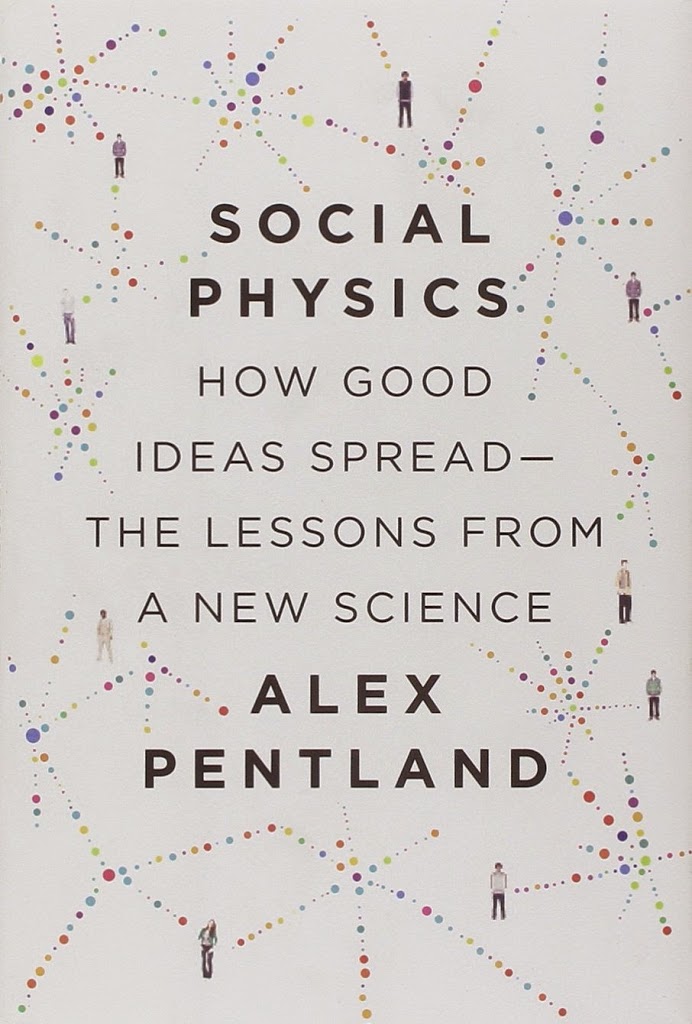Richard Feynman “What is science ?”
A fit following to Nate Silver’s estimation of the high proportion of errors in scientific publications. But also a fantastic read on how to look at the world with a sense of wonder, perpetual learning and questioning.
What science is, I think, may be something like this: There was on this planet an evolution of life to a stage that there were evolved animals, which are intelligent. I don’t mean just human beings, but animals which play and which can learn something from experience–like cats. But at this stage each animal would have to learn from its own experience. They gradually develop, until some animal [primates?] could learn from experience more rapidly and could even learn from another’s experience by watching, or one could show the other, or he saw what the other one did. So there came a possibility that all might learn it, but the transmission was inefficient and they would die, and maybe the one wholearned it died, too, before he could pass it on to others.
The question is: is it possible to learn more rapidly what somebody learned from some accident than the rate at which the thing is being forgotten, either because of bad memory or because of the death of the learner or inventors?
So there came a time, perhaps, when for some species [humans?] the rate at which learning was increased, reached such a pitch that suddenly a completely new thing happened: things could be learned by one individual animal, passed on to another, and another fast enough that it was not lost to the race. Thus became possible an accumulation of knowledge of the race.
This has been called time-binding. I don’t know who first called it this. At any rate, we have here [in this hall] some samples of those animals, sitting here trying to bind one experience to another, each one trying to learn from the other.
This phenomenon of having a memory for the race, of having an accumulated knowledge passable from one generation to another, was new in the world–but it had a disease in it: it was possible to pass on ideas which were not profitable for the race. The race has ideas, but they are not necessarily profitable.
So there came a time in which the ideas, although accumulated very slowly, were all accumulations not only of practical and useful things, but great accumulations of all types of prejudices, and strange and odd beliefs.
Then a way of avoiding the disease was discovered. This is to doubt that what is being passed from the past is in fact true, and to try to find out ab initio again from experience what the situation is, rather than trusting the experience of the past in the form in which it is passed down. And that is what science is: the result of the discovery that it is worthwhile rechecking by new direct experience, and not necessarily trusting the [human] race[‘s] experience from the past. I see it that way. That is my best definition.
(…)
I can also define science another way: Science is the belief in the ignorance of experts.
When someone says, “Science teaches such and such,” he is using the word incorrectly. Science doesn’t teach anything; experience teaches it. If they say to you, “Science has shown such and such,” you might ask, “How does science show it? How did the scientists find out? How? What? Where?”
It should not be “science has shown” but “this experiment, this effect, has shown.” And you have as much right as anyone else, upon hearing about the experiments–but be patient and listen to all the evidence–to judge whether a sensible conclusion has been arrived at.
In a field which is so complicated [as education] that true science is not yet able to get anywhere, we have to rely on a kind of old-fashioned wisdom, a kind of definite straightforwardness. I am trying to inspire the teacher at the bottom to have some hope and some self-confidence in common sense and natural intelligence. The experts who are leading you may be wrong.
I have probably ruined the system, and the students that are coming into Caltech no longer will be any good. I think we live in an unscientific age in which almost all the buffeting of communications and television–words, books, and so on–are unscientific. As a result, there is a considerable amount of intellectual tyranny in the name of science.
Finally, with regard to this time-binding, a man cannot live beyond the grave. Each generation that discovers something from its experience must pass that on, but it must pass that on with a delicate balance of respect and disrespect, so that the [human] race–now that it is aware of the disease to which it is liable–does not inflict its errors too rigidly on its youth, but it does pass on the accumulated wisdom, plus the wisdom that it may not be wisdom.
It is necessary to teach both to accept and to reject the past with a kind of balance that takes considerable skill. Science alone of all the subjects contains within itself the lesson of the danger of belief in the infallibility of the greatest teachers of the preceding generation.
PS : if you follow the link and read the whole text (highly recommended!), ignore the casual sexist comments by Feynman – hopefully meant as a joke, certainly the reflection of dominant social mores of the time, and anyways the proof that every person has their blind spots…

